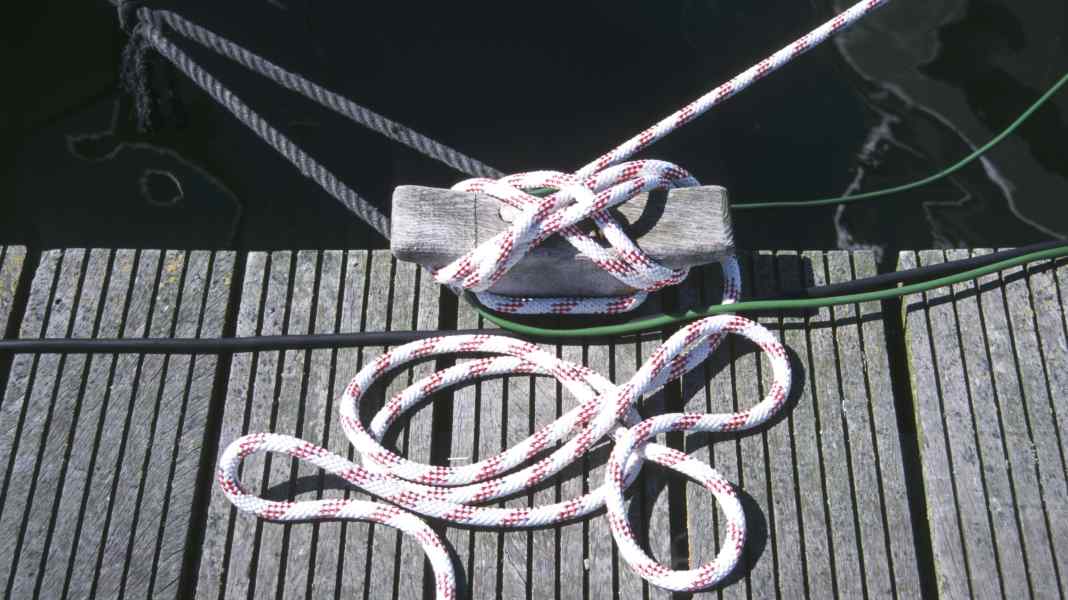
The "SHZ" reported the incident on Monday. According to the report, one or more unknown perpetrators first threw a rubbish bin and a lifebuoy into the basin of the outer harbour last Saturday night. They then cut or loosened the mooring lines, including the shore power cables, of several sailing yachts moored in the neighbouring inner harbour.
Harbour master Klaus Kühn told the "SHZ" that at least eight boats had been affected. On Sunday morning, he and a helper had manoeuvred the yachts floating in the harbour back to their moorings with an inflatable dinghy. There was no major damage, as it had fortunately been calm during the night.
Are cases of vandalism insured?
Nevertheless, the police in Glückstadt have begun an investigation and are accepting tips by calling 04124/30110.
In this case, the owners of the ships that were cut loose have remained reasonably unharmed. They may have to replace mooring lines or power cables. But what if the wind had picked up at night and the boats had collided with piles, the quay wall or other boats?
More on the topic:
Such cases of vandalism are usually covered by boat insurance. However, only if a yacht hull policy has been taken out in addition to the yacht liability policy. This covers damage caused to your own boat.
Why compulsory boat liability insurance alone is not enough
What many people don't realise: Owners whose boats have not been cut loose but have been rammed and damaged by a drifting boat also need their own hull insurance. Otherwise, they will be stuck with the damage incurred. In any case, the owner of the yacht that was cut loose cannot be asked to pay as he was not at fault.
This is different to a car. Here - and this is a major exception in German law - the principle of strict liability applies. This means that regardless of whether a car owner has acted culpably, the motor vehicle liability insurer settles damages caused to uninvolved third parties in connection with the insured vehicle.
Example: If a tyre bursts while driving and the car skids into a garden fence and tears it down, the liability insurance will compensate the property owner for the fence. Even if the driver is not responsible for the tyre bursting.
When does culpable behaviour occur?
The situation is different in yachting. Here, only if the owner can be proven to be at fault does their boat liability insurance have to pay for damage caused to third parties. For example, if a boat breaks loose in the harbour because the mooring lines were demonstrably old and brittle and then collides with a neighbouring mooring, this would be a case for boat liability. If, on the other hand, a properly moored boat breaks loose because it starts to storm out of the blue, the owner is not at fault. In this case, he or his liability company does not have to pay for any damage caused by his boat breaking loose.
Sometimes there is a dispute as to whether the owner is at fault or not. In this case, too, it is good for the injured party to have a boat hull policy. In case of doubt, the policy will initially pay for the damage and then recover the money from the alleged damaging party or their insurance company.
In addition: Under certain circumstances, the third-party liability of the party responsible for the damage is only obliged to compensate damage at current value. Your own comprehensive insurance, on the other hand, does not usually make any "new for old" deductions. It may therefore be better to settle a claim via your own comprehensive insurance instead of the other party's liability insurance. However, it is important to consider whether this may be at the expense of a no-claims bonus or an agreed excess.

